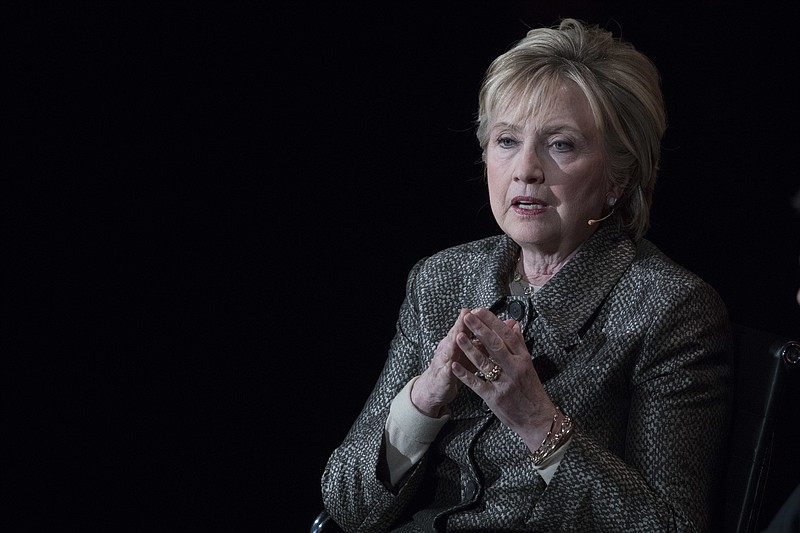In his campaign for governor of California, Ronald Reagan invoked the "Eleventh Commandment": "Thou shalt not speak ill of any fellow Republican."
In a statement about the Democratic candidate for mayor of Omaha, Neb., NARAL Pro-Choice President Ilyse Hogue paraphrased the commandment: "Thou shalt not question pro-choice ideology."
The controversy in Omaha, however, is less about abortion than the rebuilding of the Democratic party after election losses.
It lost the White House in 2016, a bleak addition to its minority status in both houses of Congress. It has fewer governorships than the Republican Party, and over past election cycles has lost more than a thousand state legislative seats.
Thus the party's dilemma, rooted in a political truism: You can't beat somebody with nobody.
Recruiting new candidates is important for both parties' maintenance of political strength. Competition is healthy for both parties.
Republicans faced that problem after Barry Goldwater lost the presidency in 1964. Rebuilding with new and younger candidates produced a partial GOP recovery in 1966 and Richard Nixon's election as president in 1968.
Fifty years on, many Republicans are uneasy about next year's midterm election, and fearful about the country's future under President Trump.
But back to Omaha.
Sen. Bernie Sanders and recently elected party leaders took their "Unity Tour" there last week on behalf of Heath Mello, 37. He is described as the type of candidate who, along with "new faces" elsewhere, could eventually re-energize the national party.
As a state senator, Mello, a practicing Catholic, supported a bill requiring that women be informed of their right to request an ultrasound before an abortion. Hogue dismisses him as "an anti-choice candidate."
To her, that is abominable:
The Democratic leaders' decision "to embrace a candidate who will strip women of [their] basic rights and freedom is not only disappointing, it is politically stupid." Thus, the so-called "'fight back tour' [looks] more like a throwback tour for women and our rights."
The U.S. Supreme Court handed down its Roe v. Wade decision in 1973, more than 44 years ago, so it remains the law of the land. The ruling remains an anathema to countless Americans.
A reasonable inference from Hogue's statement is that the party should reject any candidate who does not embrace pro-choice, i. e., a woman's "right to choose" an abortion.
Carried to its logical conclusion, the Hogue rule would require all candidates to pledge fealty to this contentious issue. That would trump a candidate's First Amendment freedom in favor of political homogenization.
America's diversity is enriched in matters of race, religious beliefs, economic issues or sexual preferences. Political candidates with diverse political viewpoints have historically strengthened our governments.
Political parties don't have the luxury of accepting only candidates whose views are indistinguishable from everyone else's. Yet that is precisely what Hogue seeks with her pro-choice criterion.
The New York Times reported that Tom Perez, the party's new chairman, "was unapologetic about supporting Mr. Mello," not surprising, given his responsibility to recruit electable candidates.
The Mello controversy needlessly complicated the party's outreach, as Randi Weingarten of the American Federation of Teachers said.
Weingarten correctly argued that "the question of whether to focus on economic justice or social issues wasn't either-or.'" Instead, the party must "convey to the public that the Democratic Party is first and foremost a party of economic opportunity."
Without that, identity politics doesn't matter much.
Michael Loftin is a former opinion editor of the The Chattanooga Times.

